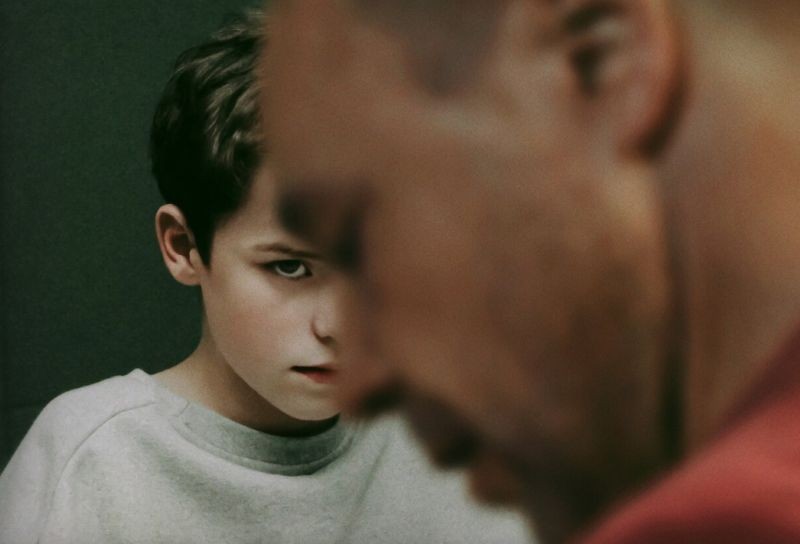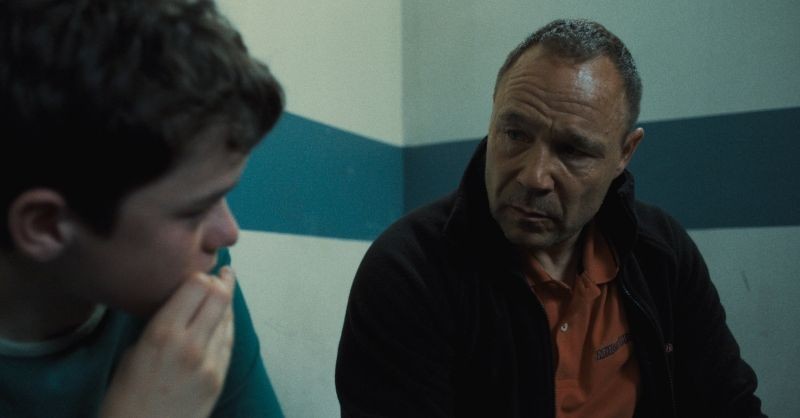 Adolescence
Adolescence
Web series review: Adolescence captures a generation’s quiet collapse with rare precision
Adolescence, a four-part British miniseries now streaming on Netflix, is not merely a drama but a quiet reckoning. It begins, like so many contemporary stories of disillusionment, with a child at the center of a crime, a 13-year-old boy, Jamie Miller (Owen Cooper), arrested for the murder of his classmate, Katie Leonard.
Yet this is no procedural, no whodunit engineered for plot twists and courtroom revelations. Instead, the series unfolds with the restraint of a psychological study and the gravity of a tragedy already set in motion.
It is less concerned with what happened than with everything that happened before: the silences, the fractures, the blind spots where something irrevocable grew.
In a performance that borders on the preternatural, Owen Cooper plays Jamie not with the precocity that often marks young actors but with an eerie interiority. He is a boy barely tethered to the world, his gaze downcast, his voice almost unwilling.
There are moments in which he seems less a character than a mirror reflecting the failures around him.
His pain is not demonstrative; it simmers beneath the surface, flickering faintly in his stillness, in the way he avoids his father’s eyes or flinches at a question he cannot answer.
Stephen Graham, as Jamie’s father, Eddie, is ferocious and crumbling all at once. His performance is a study of a man caught between fury and helplessness, trying to love his son while recoiling from the possibility of what that son may have done.
There is no melodrama here, only a deep, human ache. Opposite him, Christine Tremarco (Hannah Walters) offers something quieter but no less devastating: the bewildered sorrow of a mother whose faith in her child is slipping through her fingers, not from disbelief but from grief she cannot yet name.
Visually, Adolescence makes a bold, near-audacious choice. Each of its four episodes appears to unspool in a single, continuous shot. The effect is less technical showcase than narrative necessity. It denies the viewer respite.
There are no cuts, no angles, and no temporal distance. Instead, the camera glides patiently through kitchens, bedrooms, school halls, and interrogation rooms, drawing us into spaces where words fail and presence becomes unbearable.
This formal discipline generates an intimacy that borders on intrusion; we are not watching so much as inhabiting the grief.
But Adolescence is not a domestic drama alone. It is a meditation on masculinity, alienation, and the fragility of adolescence in an age where screens and silence have supplanted connection. It portrays a generation raised with more access, less guidance, more surveillance, and less understanding.
It suggests, with quiet urgency, that when children are not heard, they vanish not all at once but piece by piece until someone notices too late. There is no moralizing here, no ideological scaffolding. Instead, the series offers a portrait of absence, love withheld, help delayed, and attention diverted.
 Stephen Graham (R) with Owen Cooper (L) in a scene from Adolescence. Photo courtesy: Netflix UK/Stephen Graham Instagram handles
Stephen Graham (R) with Owen Cooper (L) in a scene from Adolescence. Photo courtesy: Netflix UK/Stephen Graham Instagram handles
The dialogue is sparse and elliptical. Conversations fray or fall apart, and entire scenes pass in silence.
The score, too, is nearly absent. When music does surface, it does so faintly, almost reluctantly, allowing the weight of silence to do the work. And in that silence, the series finds its most devastating truths.
In interviews, co-creator Jack Thorne has described Adolescence as a warning about digital radicalization, systemic neglect, and the perils of growing up unseen. But the series does not wag its finger.
It is neither didactic nor sentimental. It trusts its audience to feel the erosion for themselves, and what results is a kind of quiet indictment not of one boy but of a world that has forgotten how to listen until it’s far too late.
While Adolescence is bold and affecting, it is not without its challenges. After building such sustained emotional tension across the first three episodes, the finale opts for a more subdued, introspective tone rather than delivering a climactic payoff.
This was an intentional and artful choice, a refusal to sensationalize or moralize.
The episode lacked narrative momentum, and specific threads, especially regarding Jamie’s motivations or the family’s emotional catharsis, could have been better served with a more focused or restructured conclusion.
Also, the series’ emotional intensity is relentless, offering little respite from its grim tone, which some viewers may find overwhelming.
Adolescence is not easy viewing, nor is it meant to be. It is restrained, unflinching, and, at times, unbearable in its emotional precision.
But it is also one of the most vital and artful narratives of recent memory, a stark reminder that what we refuse to confront in our children will inevitably return, not always with violence but always with consequence.
The show is gripping, riveting, and harrowing. I will rate the series 4.5/5.

The writer is a senior postdoctoral scientist at Arizona State University, US. He is also an avid movie buff.
Support Our Journalism
We cannot do without you.. your contribution supports unbiased journalism
IBNS is not driven by any ism- not wokeism, not racism, not skewed secularism, not hyper right-wing or left liberal ideals, nor by any hardline religious beliefs or hyper nationalism. We want to serve you good old objective news, as they are. We do not judge or preach. We let people decide for themselves. We only try to present factual and well-sourced news.







